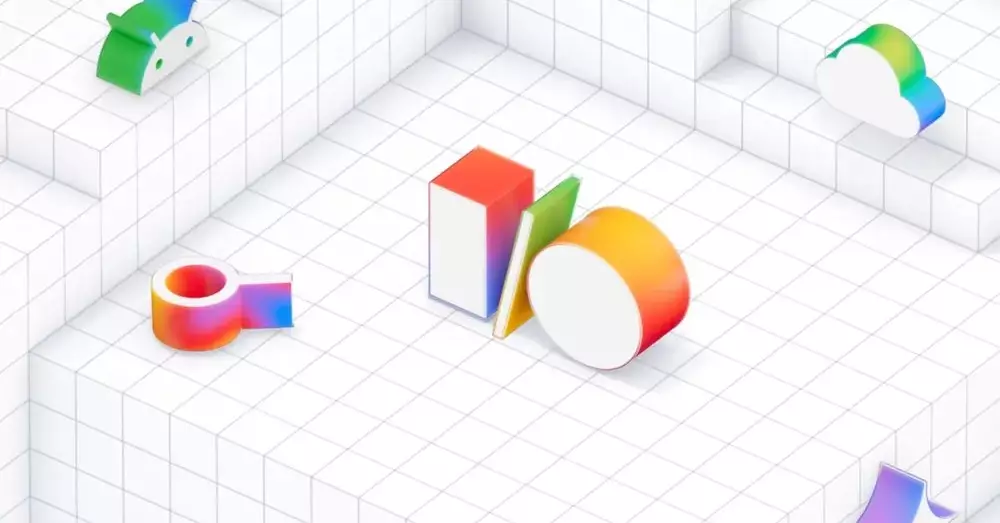As we gear up for Google’s annual I/O developer conference, the tech community is abuzz with expectations and analyses of what lies ahead. The most intriguing aspect of this year’s event, scheduled for May 20th and 21st, is its marked concentration on artificial intelligence and extended reality (XR). With the previous week already unveiling significant Android OS updates, attendees and online viewers alike may find themselves relieved from the burden of expecting any revelations on new mobile technologies. Instead, Google is bracing itself to unveil a range of sweeping advancements in AI, particularly focusing on its pioneering Gemini project.
A New Era in Artificial Intelligence
It’s hard to overstate the impact of AI on the tech landscape in recent years, and Google has positioned itself at the forefront of this revolution. Notably, Google’s strategic advancements come amid intensifying competition with titans like OpenAI, Microsoft, and Meta. This year’s I/O keynote is not merely a showcase but a crucial battleground where Google can assert its innovations amid this tech race. The emphasis on AI signifies a bold move toward a future where intuitive machines seamlessly integrate into our daily lives, a future for which Google’s Gemini AI promises to be an integral part.
For those planning to tune in to the keynote beginning at 10 AM PT / 1 PM ET on May 20th, it’s essential to set aside a significant amount of time. I/O keynotes are typically marathon sessions, often spanning a couple of hours, and this year’s event is expected to follow suit despite the absence of fresh Android announcements. We should prepare for extended discussions on the capabilities of Gemini—be it through enhanced mobile interactions or groundbreaking features set to transform how we use technology.
Xploring Extended Reality
While the hefty focus on AI is justifiably thrilling, the realm of extended reality adds another layer of excitement. Google has revealed that they will touch on their Android XR platform, albeit with less urgency than their AI projects. Unfortunately, last week’s events left XR enthusiasts wanting, as updates were scarce, raising the anticipation for a deeper dive during I/O. The mention of a prototype for smart glasses suggests Google might be gearing up for an impressive reveal. Competing hardware from companies like Samsung, including anticipations around Project Moohan, adds urgency to Google’s messaging.
Exploring the potential of XR may wield opportunities for industries beyond gaming and entertainment, enriching education, training, and remote work experiences. The blending of XR technologies with AI could pave the way for previously unimaginable applications. Google’s showcasing of this symbiotic relationship at I/O 2023 could set the stage for a transformative leap in how these technologies coalesce.
Strategic Moves in the Tech Ecosystem
Historically, Google I/O served as a platform for launching new hardware, including Pixel smartphones and smart home devices. This year, however, the strategic decision to refocus on software and AI speaks volumes about market priorities and internal ambitions. Should Google’s new focus prove successful, it could also catalyze stakeholders in the landscape to rethink how emerging tech is developed and marketed in the coming years.
For those hoping for tantalizing hardware announcements, the reality might not align with expectations. It is likely that next-generation devices, be they phones or wearables, will be saved for another occasion, as Google appears determined to focus on cementing its AI narrative first and foremost. Any XR advancements that do make an appearance will likely be overshadowed by discussions surrounding AI.
Watching the Future Unfold
The I/O conference serves as a vital touchpoint for industry watchers and enthusiastic users alike. Those keen on navigating the rapidly evolving tech landscape would be well-advised to keep a close watch on the discussions emanating from the conference. As Google submerges itself deeper into the waters of AI and XR, the implications of its innovations will carry far-reaching consequences for consumers, developers, and the wider societal fabric.
This year’s event, steeped in technological ambition, presents not just an opportunity for revelation but a clarion call for industry-wide engagement in the powerful, yet nuanced arena of AI and XR. The emphasis on these areas suggests a pivotal moment; one where advancements could potentially redefine the human experience and how we interact with the digital realm.

